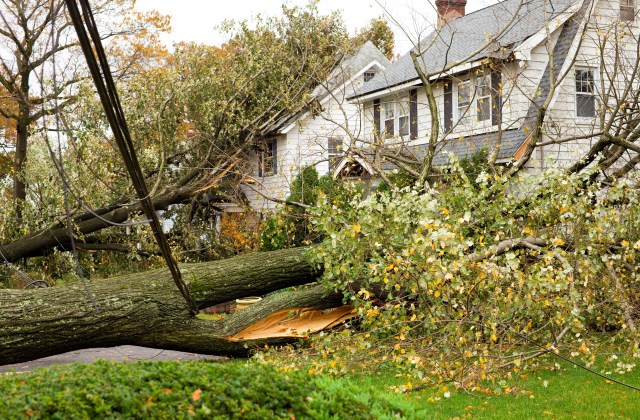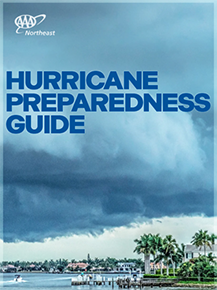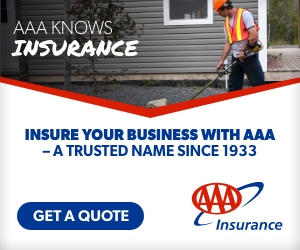Be ready for whichever way the wind blows.
In years past, high winds were symptomatic of the occasional tropical storm or offshore hurricane, but recently, it feels as though the severe wind warning on our phones is going off way more than usual. With the increase of windy conditions in the Northeast, it’s natural to wonder if you are covered for damage caused by windstorms.
Wind damage insurance claims are an unfortunate reality for many homeowners, but understanding how to prepare and handle them can help ease your worry.
Is Wind Damage Covered by Your Insurance?
“Standard homeowners insurance policies provide coverage for damage caused by wind, snow and ice to property and personal possessions,” according to the Insurance Information Institute. But the extent of coverage may vary depending on the specific terms and conditions outlined in your policy. It’s important to review your insurance policy carefully to understand the scope of coverage for wind-related hazards.
If wind has caused damage to your vehicle, such an incident would be covered under the comprehensive portion of your auto insurance policy.
Protecting Your Home and Car
Performing regular home maintenance is the best way to ensure your property is in the best possible shape to withstand high winds (and other potentially damaging storms). Keeping up with repairs throughout the year also prevents you from scrambling to batten down the hatches in a small amount of time.
Here are the main things to make sure of.
- Trim trees and branches. Stray, wind-blown limbs can inflict serious damage on homes and vehicles.
- Put outdoor furniture inside. Chairs, tables and umbrellas left on a patio can become dangerous projectiles.
- Inspect your roof. Unsecured shingles don’t stand much of a chance against a powerful storm. Consider having damaged or loose shingles replaced as soon as possible. In addition, gable roofs are particularly susceptible to high winds, according to FEMA. Owners of gable-roof homes should check to see if the gable frame has a dedicated brace and, if not, consider having one installed.
- Cover windows. Securing your windows with plywood or aluminum roll-down shutters can safeguard them against debris.
- Guard your garage door. Not all garage doors are built the same – some are better-rated for strong winds. To know for sure, have your door inspected by a professional to see if it will hold up in the event of a big storm. If it won’t, replacing or reinforcing it could protect the door and the contents of your garage.
Making a Wind Damage Claim
If wind does damage your home or car, what’s next?
First, document the extent of the wind damage by taking photos or videos and make a list of any broken items, being sure to note any structural issues. Once the damage has been recorded, contact your insurance company as soon as possible to initiate the claims process. Provide them with all relevant information, including the date and cause of the damage.
After your claim has been filed, the insurance company will typically send an adjuster to assess the damage in person. Be prepared to show them the documented evidence and answer any questions they may have. At this point, repair estimates will need to be given from qualified contractors to the insurance company. This helps ensure that your settlement amount aligns with the actual cost of repairs.
Then it’s just down to following the claims process. Work closely with your insurance company to complete the necessary paperwork and fulfill any additional requirements. Also be sure to keep track of all communications and documents related to the claim in case it’s necessary to reference them in the future.
Review your homeowner’s coverage with a AAA insurance agent.
















